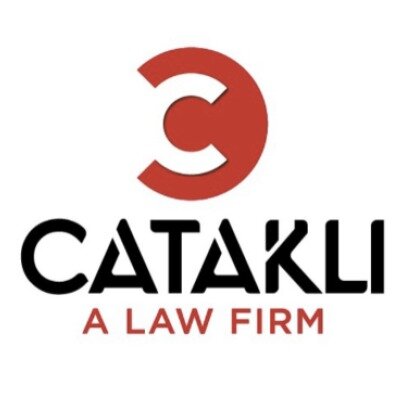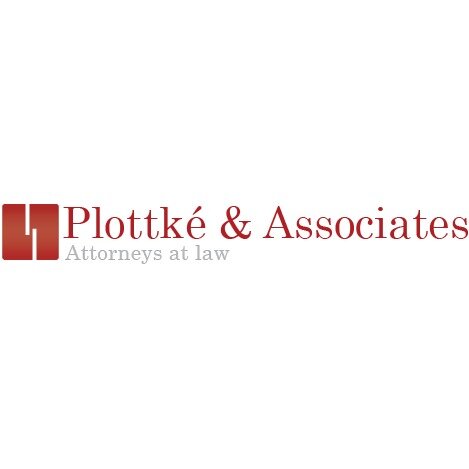Best Brokerage Lawyers in Luxembourg
Share your needs with us, get contacted by law firms.
Free. Takes 2 min.
Free Guide to Hiring a Real Estate Lawyer
List of the best lawyers in Luxembourg, Luxembourg
About Brokerage Law in Luxembourg, Luxembourg:
Brokerage is an important aspect of the financial industry in Luxembourg, providing individuals and businesses with access to securities markets and investment opportunities. In Luxembourg, brokerage services are regulated by the Commission de Surveillance du Secteur Financier (CSSF), which supervises and oversees the activities of brokerage firms to ensure compliance with local laws and regulations.
Why You May Need a Lawyer:
There are several situations in which you may need legal help in brokerage, such as disputes with brokerage firms, regulatory issues, investment fraud, or seeking advice on complex financial transactions. A lawyer specialized in brokerage law can provide you with expert guidance and representation to protect your rights and interests.
Local Laws Overview:
In Luxembourg, brokerage services are governed by the Law of 5 April 1993 on the financial sector, as well as various regulations issued by the CSSF. Key aspects of local laws relevant to brokerage include licensing requirements for brokerage firms, disclosure obligations, investor protection rules, and enforcement mechanisms for violations of securities laws.
Frequently Asked Questions:
1. What are the licensing requirements for brokerage firms in Luxembourg?
Brokerage firms in Luxembourg must obtain a license from the CSSF to operate legally. The license application process involves meeting certain capital requirements, demonstrating adequate organizational and risk management structures, and complying with anti-money laundering regulations.
2. How are brokerage firms regulated in Luxembourg?
The CSSF supervises and regulates brokerage firms in Luxembourg to ensure compliance with local laws and regulations. This includes conducting on-site inspections, reviewing financial reports, and investigating complaints from investors.
3. What are the investor protection rules in Luxembourg?
Investors in Luxembourg are protected by regulations that require brokerage firms to provide clear and accurate information about investment products, disclose any conflicts of interest, and safeguard client assets. In case of misconduct or fraud, investors may be entitled to compensation from a national investor protection scheme.
4. How can a lawyer help with brokerage disputes?
A lawyer with expertise in brokerage law can assist clients in resolving disputes with brokerage firms through negotiation, mediation, or litigation. They can also provide legal advice on investment strategies, securities regulations, and compliance with licensing requirements.
5. What are the penalties for violating securities laws in Luxembourg?
Violations of securities laws in Luxembourg can result in fines, suspension or revocation of licenses, and criminal prosecution. The CSSF has the authority to impose administrative sanctions on brokerage firms that fail to comply with regulatory requirements.
6. How can I report investment fraud in Luxembourg?
If you suspect investment fraud or misconduct by a brokerage firm in Luxembourg, you can report it to the CSSF, the Luxembourg Prosecutor's Office, or the Financial Intelligence Unit. It is important to provide evidence and details of the alleged fraud to initiate an investigation.
7. Are there alternative dispute resolution mechanisms for brokerage disputes in Luxembourg?
Yes, brokerage disputes in Luxembourg can be resolved through alternative dispute resolution mechanisms, such as arbitration or mediation. These methods offer a quicker and more cost-effective way to settle disputes outside of court proceedings.
8. What are the key considerations for selecting a brokerage firm in Luxembourg?
When selecting a brokerage firm in Luxembourg, it is important to consider factors such as reputation, regulatory compliance, fees and commissions, range of services offered, and customer support. Working with a reputable and trustworthy brokerage firm can help protect your investments and interests.
9. How can I verify the credentials of a brokerage firm in Luxembourg?
You can verify the credentials of a brokerage firm in Luxembourg by checking the CSSF's public register of authorized entities, which provides information on licensed brokerage firms, their key personnel, and any disciplinary actions taken against them. You can also seek recommendations from experienced investors or financial advisors.
10. What are the limitations on investment advice provided by brokerage firms in Luxembourg?
Brokerage firms in Luxembourg are required to provide investment advice that is suitable for their clients' financial objectives, risk tolerance, and investment preferences. They must also disclose any conflicts of interest that may affect the quality or objectivity of their advice. Investors should be cautious of firms that engage in unsuitable or misleading investment recommendations.
Additional Resources:
For additional resources and information on brokerage law in Luxembourg, you can visit the website of the Commission de Surveillance du Secteur Financier (CSSF) or seek guidance from legal practitioners specializing in financial and securities law. The Luxembourg Bar Association and the Luxembourg Financial Industry Federation (ALFI) can also provide valuable insights and support for individuals in need of legal advice in brokerage.
Next Steps:
If you require legal assistance in brokerage in Luxembourg, it is advisable to consult with a lawyer who has expertise in financial and securities law. You can schedule a consultation to discuss your specific needs and concerns, explore your options for resolving disputes or regulatory issues, and obtain tailored legal advice to help you make informed decisions in your brokerage transactions.
Lawzana helps you find the best lawyers and law firms in Luxembourg through a curated and pre-screened list of qualified legal professionals. Our platform offers rankings and detailed profiles of attorneys and law firms, allowing you to compare based on practice areas, including Brokerage, experience, and client feedback.
Each profile includes a description of the firm's areas of practice, client reviews, team members and partners, year of establishment, spoken languages, office locations, contact information, social media presence, and any published articles or resources. Most firms on our platform speak English and are experienced in both local and international legal matters.
Get a quote from top-rated law firms in Luxembourg, Luxembourg — quickly, securely, and without unnecessary hassle.
Disclaimer:
The information provided on this page is for general informational purposes only and does not constitute legal advice. While we strive to ensure the accuracy and relevance of the content, legal information may change over time, and interpretations of the law can vary. You should always consult with a qualified legal professional for advice specific to your situation.
We disclaim all liability for actions taken or not taken based on the content of this page. If you believe any information is incorrect or outdated, please contact us, and we will review and update it where appropriate.













